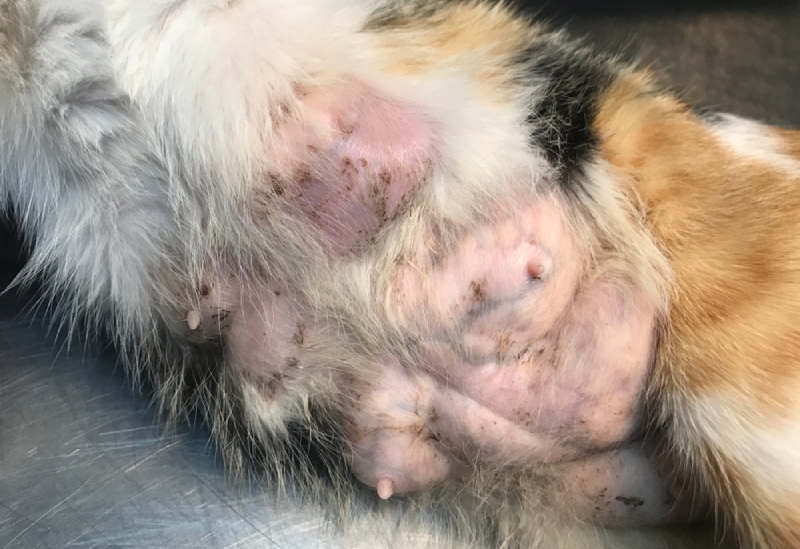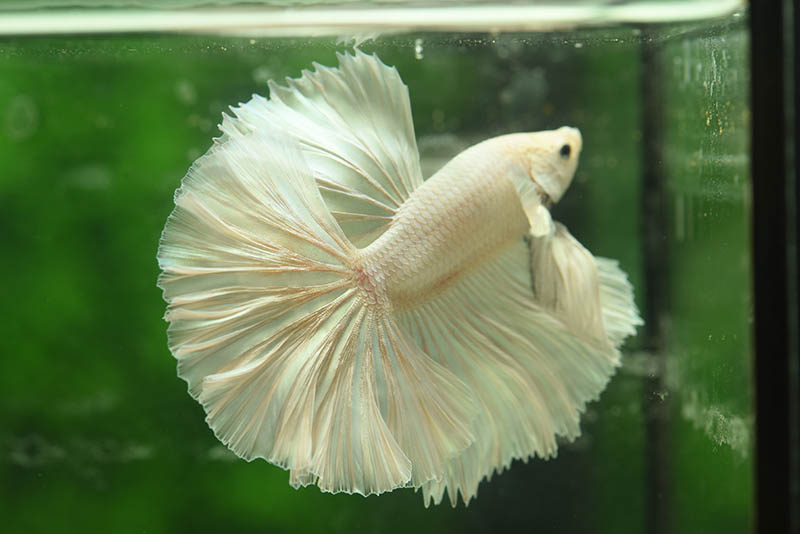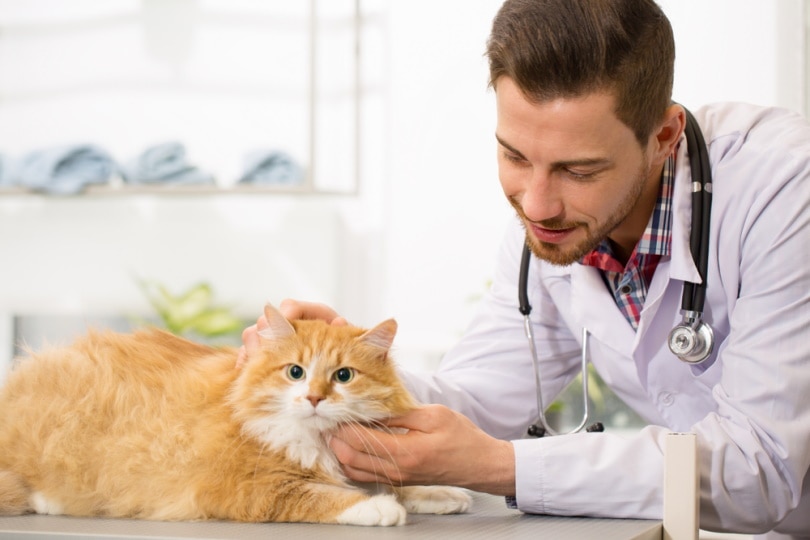5 Common Bichon Frise Health Issues (Vet Answer)
By Dr. Kim Podlecki, DVM (Vet)
Updated on

Bichon Frises are everyone’s favorite white fluffy dog. They are known for being great companions and often have gentle, even keeled temperaments. But even the best Bichon Frises are not without their health problems. Bichons will frequently suffer from allergies, dental disease, and eye conditions such as cataracts. Some Bichon Frises will also suffer from a moveable, or luxating, patella and many will develop diabetes or Cushing’s disease as they get older. In this article we will discuss five common health issues that the Bichon Frise may have.
The 5 Common Bichon Frise Health Issues
1. Allergies
Contrary to what a lot of marketing companies may make you believe, the most common causes of allergies in dogs are to things in the environment, not to food. Just like you and I, dogs will also suffer from seasonal or environmental allergies to weeds, pollen, molds, and grasses. In dogs, allergies will manifest as itchy, or pruritic, skin. Your Bichon may then lick, chew, or bite at their skin and feet, causing secondary infections.
Allergies to foods are possible, though not as common as things in the environment. In dogs, we most commonly see food allergies secondary to protein sources, not grains. Dogs can also be extremely allergic to fleas, other insects, and even different cleaning products.
If your Bichon suffers from allergies, they may also be more prone to getting ear infections as well. Bichons are known for having fluffy, hair covered ears. Sometimes there is even hair that grows within the ears. All of these things may be catalysts for your Bichon to easily develop ear infections.

2. Dental Disease
While any size and breed of dog can develop dental disease, it does seem to be more prominent in small breed dogs such as a Bichon Frise. Your Bichon may develop heavy tartar, bad breath, and gingivitis (inflammation of the gums) at a very early age. If left untreated, the tartar may become so bad that teeth will fall out on their own.
Dental disease can be prevented with regular teeth brushing, veterinary approved dental chews, and even prescription dental food. It’s never recommended to give your Bichon bones, rawhides, or other chewy objects to try and clean their teeth. These may cause more trauma by breaking the teeth, or even causing your Bichon to choke. Always speak to your veterinarian about their recommendations. Your veterinarian may also recommend routine dental cleanings with dental extractions depending on the severity of your pups’ dental disease.
3. Eye Conditions
The Bichon Frise can suffer from many different eye problems such as cataracts, glaucoma, and irritation. Cataracts will impede your Bichon’s vision, with blindness occurring if left untreated. There are surgical options for dogs with cataracts. Surgery is very specialized and must be completed by a Board Certified Veterinary Ophthalmologist.
Glaucoma is when the pressure within the eye, or globe, is very high. This will cause the eye to appear as if it’s bulging, red, irritated, and painful. Your dog may need drops to try and decrease the pressure in the affected eye(s). If left untreated, or if treatment does not work, many dogs may need the affected eye(s) removed due to chronic pain.
The large amount of hair around your Bichon’s eyes may put them at increased risk for irritation. The hair may get in the eye and cause trauma. Often the hair will become crusted from tears or even discharge. This crusted hair can be very painful and will need to be removed. Sedation is sometimes needed to safely do this.

4. Luxating Patella(s)
The patella is otherwise known as the kneecap. Normally, the kneecap sits in the middle of the knee and helps with bending and straightening the stifle (knee joint) of both of your dog’s back legs. A luxating patella is when one or both kneecaps move to either the inside or the outside of the stifle. This is often hereditary in smaller dogs such as the Bichon. The groove on the bone that helps to hold the patella in place is often too shallow, allowing the patella to float off to either side instead of staying in the middle.
A luxating patella can be very painful for your dog. It may become stuck in an abnormal position and your dog may not be able to bend and straighten their leg like normal. Over time, a luxating patella may develop painful arthritis, further inhibiting your dogs’ motion. Some dogs may also suffer ligament injuries along with having the luxating patella. Speak to your veterinarian about pain medications, anti-inflammatories, joint supplements, and possibly surgery.
5. Metabolic Diseases
“Metabolic disease” is a blanket term that can include multiple disease processes. With the Bichon, the most common metabolic diseases are diabetes mellitus and hyperadrenocorticism (otherwise known as Cushing’s disease). Diabetes is most common in middle aged to older dogs, and most will require daily insulin injections once diagnosed. Dogs that are diabetic will require insulin for the rest of their life with routine laboratory monitoring.
Cushing’s disease can sometimes be difficult to diagnose. It occurs when the body is creating too much steroids. Signs of Cushing’s disease can look very similar to other diseases, even diabetes. Your veterinarian will want to run routine bloodwork and then often confirm a diagnosis with an additional test that is performed over a few hours of the day. An abdominal ultrasound may also be helpful. Once diagnosed, your Bichon will need to be on medications daily with routine laboratory testing completed by your veterinarian to make sure that their medication dose is appropriate.

Conclusion
The Bichon Frise can be a great companion dog. Even so, they may still have health problems. The Bichon may commonly suffer from allergies, secondary skin infections, and a luxating patella (floating kneecap). Your Bichon may also have eye conditions such as cataracts and/or glaucoma, often needing a specialist to appropriately manage or perform surgery. As with many small dogs, the Bichon may also develop severe dental disease and often requires regular dental cleanings and sometimes extractions. The Bichon Frise can also develop metabolic diseases such as diabetes mellitus or Cushing’s disease. Despite these health problems, with routine veterinary examinations and care, your Bichon Frise will hopefully be by your side for many years to come!
Featured Image Credit: kotikov, Shutterstock











